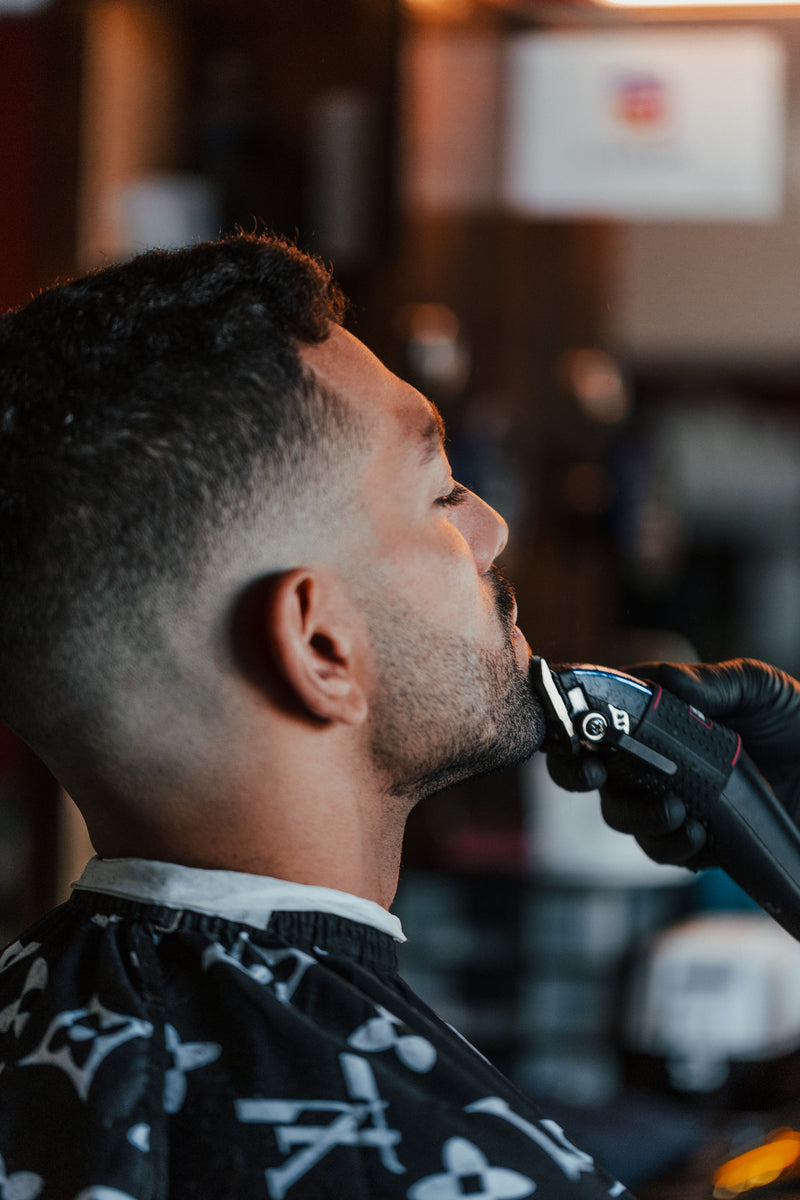Are you struggling to find the best way to learn music production? Look no further. In this comprehensive guide, we will cover the most effective methods and techniques for learning music production. Whether you are a beginner or an experienced musician, we have everything you need to take your music production skills to the next level. From understanding the basics of music production to mastering advanced techniques, we’ve got you covered. So let’s dive in and discover the best way to learn music production!
Table of Contents

The Basics of Music Production
If you’re interested in music production, you’ll need to acquire some essential tools and equipment to get started. Let’s take a look at the basics of what you’ll need:
Essential Tools and Equipment for Music Production
- Computer: A reliable computer with good processing power and storage space is essential.
- Digital Audio Workstation (DAW): A DAW is software used for recording, editing, and mixing music. Some popular DAWs include Ableton Live, Logic Pro X, and FL Studio.
- Audio Interface: An audio interface is a device that connects your computer to other audio equipment, like your microphone and studio monitors.
- Microphone: A microphone is used to capture live instruments and vocals.
- Studio Monitors or Headphones: Studio monitors and headphones are essential for monitoring your audio and ensuring accurate playback.
- MIDI Keyboard Controller: A MIDI keyboard controller is a device that allows you to control virtual instruments and plugins in your DAW.
- Cables and Accessories: You’ll need various cables and accessories like XLR cables, mic stands, and pop filters.
Understanding Digital Audio Workstations (DAWs)
A DAW is the most important tool in music production. It is where you’ll record, edit, and mix your music. There are many different DAWs available, each with its strengths and weaknesses. It’s important to do your research and choose the DAW that best fits your needs and budget. Some popular DAWs include Ableton Live, Logic Pro X, and FL Studio.
Setting Up a Home Studio
Setting up a home studio is an essential step in music production. Here are some tips to help you get started:
- Choose a quiet and isolated room: To avoid outside noise, choose a room that is quiet and isolated from the rest of your home.
- Use acoustic treatment: Acoustic treatment helps control the sound in your room and reduce echoes and reflections. Acoustic panels, bass traps, and diffusors are all effective ways to treat your room.
- Position your studio monitors correctly: Proper positioning of your studio monitors is crucial for optimal sound. The monitors should be angled towards you, and at ear level.
- Invest in a comfortable chair and desk: Music production can be a time-consuming process, so investing in a comfortable chair and desk can help avoid fatigue during long sessions.
Tips for Getting Started
Here are some tips to help you get started with music production:
- Start with a simple project: Start with a simple project, like a cover of a popular song, to practice recording, editing, and mixing.
- Experiment with different sounds and techniques: Music production is all about creativity, so don’t be afraid to experiment with different sounds and techniques.
- Learn from other producers and musicians: Join online communities and forums to connect with other producers and musicians and learn from their techniques.
- Practice regularly to improve your skills: Practice makes perfect, so set aside time regularly to improve your music production skills.

Learning Music Production Techniques
Learning music production techniques is essential to becoming a successful music producer. In this section, we’ll provide an overview of the different techniques involved in music production, tips and strategies for learning and improving music production skills, and recommended courses and resources to help you get started.
Overview of Music Production Techniques
Music production techniques are varied and diverse, and it’s important to understand the basics to create high-quality music. Here are some techniques you should learn:
- Arrangement: Organizing the different parts of a song to create a cohesive structure.
- Synthesis: Creating sounds using software or hardware synthesizers to produce original and unique sounds.
- Sampling: Incorporating pre-recorded sounds into your music to add texture and depth.
- Drum Programming: Creating complex drum patterns using software or hardware drum machines.
- Sound Design: Creating unique sounds using synthesis, sampling, and audio effects to produce a song’s unique character.
Tips and Strategies for Learning and Improving Music Production Skills
Here are some tips and strategies to help you learn and improve your music production skills:
- Take online courses to learn music production from industry experts. Online courses offer a flexible and affordable way to learn music production, and there are many options available, including Coursera, Udemy, and Skillshare.
- Attend music production workshops and events to gain hands-on experience. Workshops and events offer a chance to learn from experienced music producers, network with other producers, and gain hands-on experience with equipment.
- Learn music theory to understand the structure and components of music. Music theory is the foundation of music production, and it’s important to understand the basics of melody, harmony, and rhythm to create high-quality music.
- Practice regularly and experiment with different techniques to develop your skills. Consistent practice is the key to developing your music production skills. Experimenting with different techniques will help you discover new sounds and styles.
- Get feedback from other producers and musicians to identify areas for improvement. Feedback is essential for improving your music production skills. Joining online communities or collaborating with other producers and musicians can help you receive constructive criticism and identify areas for growth.
Recommended Courses and Resources
Here are some recommended courses and resources to help you learn music production:
- Coursera Music Production Courses: Coursera offers a wide range of online courses for learning music production from industry experts. These courses cover everything from basic music theory to advanced mixing and mastering techniques.
- Sound On Sound: Sound On Sound is a website that offers tutorials and reviews on music production equipment and software. It also features articles and interviews with music producers and engineers.
- Pensado’s Place: Pensado’s Place is a YouTube channel featuring interviews and tutorials from music producers and engineers. The channel covers a wide range of topics, from mixing and mastering to music industry trends.
- Ableton Live: Ableton Live is a popular DAW with built-in tutorials and resources for learning music production. It’s a great option for beginners and offers a wide range of features for more advanced users.
Importance of Music Theory in Music Production
Music theory is the study of how music works. It’s essential for understanding the elements of music, such as melody, harmony, and rhythm. Learning music theory can help you create more complex and interesting music. It’s important to understand the basics of music theory to create high-quality music. Some important concepts to understand include scales, chords, and time signatures.

Recording and Mixing Techniques
Recording and mixing are crucial components of music production. They require both technical and creative skills to achieve a high-quality final product. Here are some techniques that you should learn to improve your recordings and mixes.
Explanation of Recording and Mixing Process in Music Production
Recording is the process of capturing sound using microphones or direct inputs. It’s important to use a good quality microphone and audio interface to ensure that the sound is captured accurately. Mixing is the process of balancing the different elements of a song and creating a stereo image. It involves adjusting the volume, panning, and EQ of each track to create a cohesive sound.
Tips and Strategies for High-Quality Recordings
Here are some tips and strategies for achieving high-quality recordings:
- Use a good quality microphone and audio interface to ensure that the sound is captured accurately.
- Position the microphone correctly for optimal sound. Experiment with different microphone placements to find the best sound for each instrument or vocal.
- Use pop filters and shock mounts to avoid unwanted sounds, such as pops and vibrations.
- Record in a quiet and isolated room to minimize background noise.
Recommended Recording and Mixing Techniques for Different Genres
Different genres require different recording and mixing techniques. Here are some recommended techniques for different genres:
- Electronic Dance Music (EDM): Use sidechain compression and high-pass filters to create a pumping effect. Use automation to create build-ups and drops.
- Hip Hop: Use EQ and compression to make the vocals stand out. Experiment with different effects, such as delay and distortion, to create a unique sound.
- Rock: Use distortion and reverb to create a powerful sound. Experiment with mic placement and use different microphone types to capture the unique sound of each instrument.
Understanding Audio Effects and How to Use Them
Audio effects are used to enhance or modify the sound of a recording. Some common audio effects include EQ, compression, and reverb. It’s important to understand how each effect works and how to use them properly. Here are some tips for using audio effects:
- Use EQ to adjust the frequency balance of each track. Cut frequencies that are not needed and boost frequencies that add clarity and presence.
- Use compression to control the dynamic range of each track. This helps to even out the volume level and make the sound more consistent.
- Use reverb to create a sense of space and depth. Experiment with different types of reverb to find the right sound for each track.
- Use delay to create a sense of movement and space. Experiment with different delay times and feedback levels to create interesting effects.

Advanced Music Production Techniques
Advanced music production techniques can help you take your music to the next level. In this section, we’ll discuss some advanced techniques that you should learn to create more dynamic and unique music.
Overview of Advanced Techniques in Music Production
Automation
Automation is a powerful technique that allows you to control parameters over time, creating dynamic changes in your music. For example, you can automate the filter cutoff frequency to create a sweeping effect, or automate the volume to create a fade-in or fade-out effect.
Sampling
Sampling involves taking small pieces of audio and using them to create new sounds. You can sample anything from field recordings to synthesizers, and use them to create unique textures and rhythms in your music.
Granular Synthesis
Granular synthesis is a technique that involves using small grains of sound to create complex textures. It’s a powerful technique for creating atmospheric sounds and can be used to create everything from pads to percussion.
Vocoding
Vocoding is a technique that involves using a synthesizer to create unique vocal effects. It works by analyzing the spectral content of a vocal and using that information to modulate the sound of a synthesizer. The result is a robotic, otherworldly effect that can add a lot of character to your music.
Tips for Incorporating Automation and Effects
Here are some tips for incorporating automation and effects into your music:
- Experiment with different automation techniques to create dynamic changes in the music.
- Use effects to create unique sounds and textures, but don’t overuse them as it can make your music sound cluttered and messy.
- Use automation and effects to create a narrative in your music, telling a story through sound.
Discussion of Music Production Trends and New Techniques
Music production trends and new techniques are constantly evolving, and it’s important to stay up-to-date with the latest trends and techniques to keep your music fresh and relevant. Some current trends in music production include:
- Lo-fi and chillhop: These genres are characterized by their use of lo-fi, vintage sounds and relaxed beats.
- Future bass: This genre is characterized by its use of heavy basslines and bright, melodic synths.
- Experimental and avant-garde: These genres push the boundaries of music production, using unconventional sounds and techniques to create unique and challenging music.
By staying up-to-date with current trends and techniques, you can incorporate new ideas into your music and keep your listeners engaged and excited.

Building a Successful Career in Music Production
To build a successful career in music production, you need to be skilled and dedicated. In this section, we’ll provide some tips for building a successful career:
Overview of Different Career Paths in Music Production
Music production offers a wide range of career paths to choose from, including:
- Music Producer: Creating and overseeing the production of music.
- Recording Engineer: Capturing and manipulating sound during the recording process.
- Mixing Engineer: Balancing the different elements of a song and creating a stereo image.
- Mastering Engineer: Preparing the final product for distribution.
Tips for Building a Successful Career
Here are some tips for building a successful career in music production:
Networking
Networking is a critical component of building a successful career in music production. By networking with other producers, musicians, and industry professionals, you can learn new techniques, gain exposure to different styles of music, and build relationships that can lead to new opportunities.
- Attend industry events and conferences to meet new people and learn about new trends.
- Collaborate with other producers and musicians to create new music and build your portfolio.
- Use social media and online platforms to connect with other producers and musicians.
Developing Your Skills
To stand out in the competitive music industry, you need to develop your skills and practice regularly. Here are some tips for developing your skills:
- Learn new techniques by taking courses and workshops.
- Practice regularly by producing music and experimenting with different styles.
- Seek feedback from other producers and musicians to improve your skills.
Promoting Your Music
Promoting your music is essential for building your brand and attracting new clients. Here are some tips for promoting your music:
- Use social media and other online platforms to showcase your music and build your brand.
- Create a professional website that showcases your music and production services.
- Participate in music competitions and festivals to gain exposure.
Understanding Copyright Law and Licensing
Understanding copyright law and licensing is essential for protecting your music and getting paid for your work. Here are some things to consider:
- Register your music with a performing rights organization (PRO) to collect royalties.
- Use a music distribution service to distribute your music to different platforms.
- Consider hiring a lawyer to help you navigate copyright law and licensing.
By following these tips, you can build a successful career in music production and achieve your goals.
Conclusion
In conclusion, music production is a complex yet rewarding process that requires a combination of technical skills, creativity, and a passion for music. By understanding the basics of music production, including the essential tools and equipment, digital audio workstations (DAWs), and how to set up a home studio, you can start producing your own music in no time. Additionally, learning music production techniques, recording and mixing techniques, and advanced music production techniques can help you take your music to the next level.
Remember to stay up-to-date with the latest music production trends and techniques, and don’t be afraid to experiment with different styles and genres. Practice regularly, and connect with other music producers and musicians to learn from their experiences.
If you’re interested in learning more about music production, be sure to check out our other articles on music education, music production software, music production courses, music production tutorials, music production tips, music production techniques, and music production equipment. Good luck on your music production journey!
FAQ
Q. Who is the best way to learn music production suitable for?
A. Anyone who has an interest in music and wants to produce their own tracks.
Q. What are the essential tools needed to learn music production?
A. A computer, DAW software, audio interface, microphone, studio monitors, and MIDI keyboard controller.
Q. How long does it take to learn music production?
A. It depends on the individual and their dedication to practice and learning, but it can take several months to several years.
Q. What if I can’t afford expensive equipment for music production?
A. There are many affordable options available, including free DAW software and budget-friendly equipment.
Q. How important is music theory in learning music production?
A. Music theory is essential for understanding the structure and components of music, and it is important to learn the basics.
Q. What if I don’t have a musical background?
A. It is still possible to learn music production without a musical background, but it may require more time and effort to understand the concepts.

